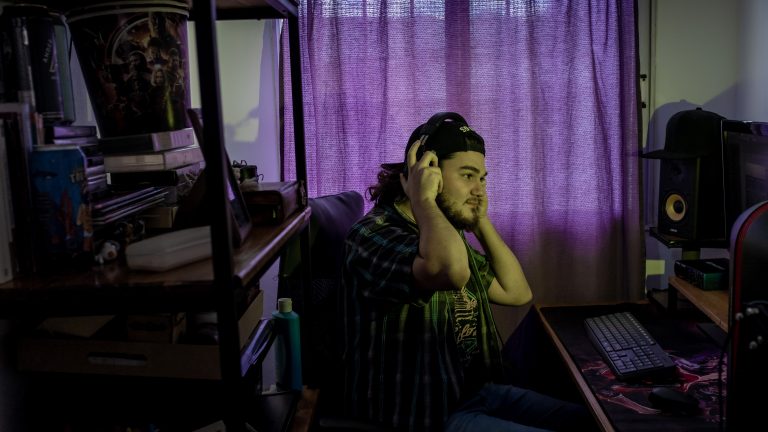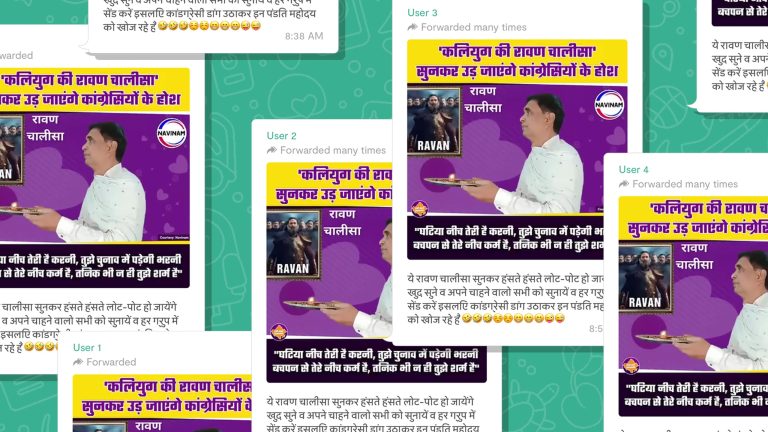When he first opened his Conectar Igualdad netbook in 2014, the 10-inch black screen reflected Mateo Palacios Corazzina’s face back at him: a 12-year-old-boy from La Boca, one of Buenos Aires’ historic slums, about to turn on his first computer. What neither he — nor those who had handed out the device — knew, was that a new era of Argentine music was about to be launched by that 1GB RAM machine. Using his netbook as a makeshift studio, Mateo became the star that millions today know as Trueno, one of the fastest rising stars in Latin American rap.
Trueno’s experience wasn’t a one-off. As a preteen, Trueno launched his music career in much the same way; by recording his lyrics on a netbook for virtual auditions. In 2014, Red Bull chose his netbook-recorded video, and his career took off too. Seven years later, he has 6 million followers, while one of his videos has hit more than 48 million views in less than six months. Argentina’s Culture Ministry even features him as an emblem of the country’s cultural production. He is only 19.
In the mid-2010s, dozens of kids discovered that by getting these very basic devices, they were suddenly able to harness the power of the internet, music, and their own freestyle skills. Present-day stars like Neo Pistea (Sebastián Chinellato) and L-Gante (Elian Valenzuela) also had their netbooks to thank as their key to the door out of marginalization and into Latin American stardom.
Valenzuela even got his artistic name thanks to his netbook. As a kid, he was so enamoured by it that he would spend hours watching videos in his pajamas. His mother would greet him with a sarcastic: “¡Qué elegante!” (So elegant!) The moniker stuck, and when Valenzuela chose his stage name, he opted for “L-Gante.”A $10 mic was the only hardware Valenzuela had needed to purchase to record L-Gante RKT — the single he created entirely on his Conectar netbook, which today has over 157 million views on YouTube after being released last October.
Conectar Igualdad was released in 2010 and wound down from 2015 until it wrapped up in 2018. The idea was simple: With public schools as mediators, the state would put a netbook in every public primary and secondary school student’s hands. That way, every low-income student in Argentina had access to tech when computers were becoming essential work tools.
Tech in Argentina has always been particularly inaccessible due to the country’s traditionally protectionist policies — often with the effect of raising prices and lowering product quality. Conectar Igualdad could be interpreted as a continuation of these policies. The government’s precondition for the free distribution of netbooks was that they had to be made in Argentina. So, Boris Garfunkel e Hijos (BGH), a local company founded during Argentina’s early 20th-century golden age, was hired to manufacture the hardware.
“In many cases, those were the first devices to reach people’s homes, so it implied connectivity for the whole family, not just the student,” Laura Marés Serra, general manager at Educ.ar — the state-run company in charge of the netbook program — told Rest of World.
More than four million students received a computer between 2011 and 2015. These were exactly the years that saw the rise of a budding generation of rappers, trappers, and freestylers. The overlap is no coincidence to Sebastián Benítez Larghi, director of the sociology department at the La Plata National University. “The working classes have always had a tradition of cultural creation — urban rhythms are just more proof of that,” he told Rest of World.
When asked about his precarious childhood, Trueno told Rest of World: “It is hard to come from a place where there are few opportunities, or the opportunities consist of getting involved in some shit: Many of my primary schoolmates are now on the run… or behind bars. We come from a barrio full of marginalization. But there are also many families, a lot of immigrant culture, a lot of art. And music was a huge tool for avoiding marginality,” he said.
In Conectar Igualdad’s case, huge tools came in small packages: measuring in at 10 inches, with a 1.66 Ghz processor, a 300K pixel camera, one to two-GB of RAM, the netbook didn’t pack much of a technological punch. But, for most kids, it meant they didn’t have to ask for permission to use a computer for the first time.
These government-issued netbooks did present their young owners with some sizable technological hurdles to overcome. DJ and visual artist David Acosta (a.k.a Glitcha) told Rest of World that “to get the sound I wanted, I was forced to be especially creative because of the computer’s poor capacity.” The 23-year-old had to train himself to use software in a roundabout way to get around the device’s limited processing power. Tactics like resampling came in particularly handy.
L-Gante agreed in a recent interview: “To all those kids who are into music and have similar goals … You don’t need loads of kit to succeed.”
While Glitcha browsed his software sound effects until he found ones that didn’t make his netbook lag, Trueno knew exactly what to do when he unboxed his computer. “The first thing I did was to install Audacity,” the rapper said. The second was to start recording — he described his world on the netbook’s inbuilt microphone, rapping about what he saw, heard, felt, and knew about his barrio.
“The first thing I did was to install Audacity.”
Glitcha was keen to spend no more than was absolutely necessary, so he headed for Taringa, a once-pirate software forum that is now a social networking site, as soon as he got his computer. He had had a music production program on the family desktop PC, “but since we were four siblings, I just had 30 minutes each day to use it,” he said. “So, FL Studio was the first thing I installed when I got the netbook.”
But the netbooks did come with a particular sort of inbuilt software. Since each netbook was linked to a specific school network, as soon as the device was out of range, it would automatically lock. According to Acosta, a school administrator could lock the netbooks for a specific duration of time, such as every 20 days or after being switched on 2,000 times. It meant that, beyond needing special creativity to make music, every student would also have to “hack” their computer every so often.
Acosta did this by asking his information technology teacher. “I used to pay attention to the calendar,” he said. “If the 20th day was on a Friday and I forgot to take it to be unlocked, I’d have to wait until Monday evening to use it again.” But those who didn’t mind the rules, or lived too far from school, simply took the computer to a friendly repair shop and got rid of the lock schedule.
Despite the issues with the basic hardware and the intrusive software, kids were granted access to a tool that had previously been mostly out of reach — the internet. “Online tutorials played a major role in my musical formation,” recalled Glitcha, “Through the netbook, YouTube was my teacher.”
When asked how it was that these working-class teens managed to achieve such mass appeal, producer and talent scout Bad Boy Orange, explained to Rest of World that “a generation prior [to these netbook musicians], in the noughties, urban tribes disappeared, and there was a ‘coming out of the closet’ regarding working-class rhythms like cumbia, reggaeton, and urban genres. So, when these teens browsed the internet to download music, they fed on this broad range of influences.”
Trueno used his poor Internet connection to submit videos for freestyle battles and virtual auditions. Perhaps his videos were blurry and his Internet took hours to upload the tracks, but Red Bull’s judges did not seem to mind. Once he was accepted to the 2014 Red Bull Buenos Aires Regional Tournament, there would be no looking back.

Despite its success, Conectar Igualdad began to wind down by 2015. In the following years, Argentina would face historic currency devaluations that hit vulnerable families the most. Nevertheless, by that point, what Conectar had started was unstoppable, and it was precisely during those years that the netbook trappers exploded onto the scene.
Starting in 2017, the trap revolution and hip hop culture spread across Argentina. Neo Pistea, Trueno, L-Gante, and their ilk became emblems of a whole new cultural expression — one that was suddenly put at risk by economic and political crises.
Conectar Igualdad was supposed to end definitively in 2018, but the next year saw a new government c0me to power. The netbook program has since experienced a rebirth as a part of a bigger project. “Last year, we released the Juana Manso Federal Plan,” said Marés Serra, the general manager at Educ.ar. “And even though we do not have enough funds to cover every grade for now, we have returned to the model where the student owns the computer.”
At face value, the program seems intended to achieve similar goals as in the 2010s, but now the netbook trappers’ influence on the program’s objectives has been put front and center. “We want to encourage students to become whatever they want by using that computer: a YouTuber, a developer, or an urban rhythms artist if that’s their wish,” said Marés Serra.
Argentina’s culture ministry has gone as far as to organize the first national hip hop contest. “Urban rhythms have a massive appeal among young people of all classes,” Luis Sanjurjo, the ministry’s national director of cultural industries, told Rest of World. “This artform has powerful international projection and has created… a huge cultural market almost in recent years. We cannot let that potential go to waste.”
Even more surprisingly, when the pandemic lockdowns were instituted, the government went a step further in supporting the netbook trappers’ legacy. Just four years after the practice of hacking computers was officially frowned upon, those very same authorities are now publicly promoting the practice with online banners inviting students to “unblock your Conectar Igualdad netbook.”
As a new Covid-19-induced crisis looms over the country, many Argentine youngsters are once again faced with tough choices about whether or not they can afford to follow their artistic dreams.
Trueno, who will debut at Buenos Aires’ biggest theater in September, has moved on from his old netbook. “I am discovering what it means to be a real musician,” he said. “I am now accessing new technology and trying to learn the best techniques for my beats and my art.” But he hasn’t forgotten his roots. “I think a computer for anyone without enough resources is a key tool to empower studies, work, art, whatever.” To Trueno, the path out of the barrio and to super-stardom is simple: The next generation of musicians just needs “the necessary tools to build their destinies.”





